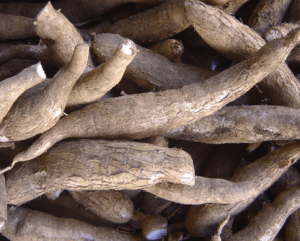How investments in WAFM is stimulating growth in food production and processing in West Africa
 Agriculture is core to the economy of West Africa, representing some 35 per cent of the region’s GDP and offering about 60 per cent of all jobs. The meaningful development of agriculture will bolster food security and potentially drive overall economic growth in the region. But that growth can only be attainable when there is targeted, sustainable investment in the sector.
Agriculture is core to the economy of West Africa, representing some 35 per cent of the region’s GDP and offering about 60 per cent of all jobs. The meaningful development of agriculture will bolster food security and potentially drive overall economic growth in the region. But that growth can only be attainable when there is targeted, sustainable investment in the sector.
In 2014, the West Food Markets Programme (WAFM), a UKaid/Department For International Development (DFID) funded project aimed at addressing regional food insecurity in the Economic Community of West African States (ECOWAS) and enhancing staple food trade along the Ghana-Burkina Faso and Nigeria-Niger corridors was started. This enterprise-driven programme where West African private sector firms can reach farmers, consumers, youth and women, creating and consolidating jobs, and improving nutrition, incomes, prosperity and stability, is managed by the Palladium Group.
Today February 26, 2019 during a close-out forum, 60 partners and stakeholders from Ghana, Burkina Faso, Nigeria, Niger and groups promoting cross-border trade together with UKaid/DFID officials met to discuss the achievements, challenges and the way forward for WAFM.
In his presentation, Dr. Terry Lacey, WAFM’s Project Team Leader said: “WAFM has benefitted over 560,000 smallholder farmers, more than four times its original target, raised more £16 million alongside a UK grant of £7 million, to support improved food production, promoting economic integration and regional food trade in ECOWAS. This has helped to bring together Anglophone and Francophone West African countries to combat food insecurity which has affected more than ten million people.”
He indicated that the WAFM Challenge Fund support from UK taxpayers went to a successful cross-border network of 12 agribusiness firms benefitting more than three million West Africans mostly in rural families.
This support, he said, along with private sector funding from 30 banks and funding sources, helped to scale up staple food production based on maize, cassava, sorghum and millet, boosting processing, storage, marketing and food availability, as well as farmer’s purchasing power and regional trade.
He stated further that this regional enterprise network of 12 firms co-invested more than £11 million into food production along with £5 million raised with WAFM support, purchasing more than £23 million of crops from farmers, with food product sales over £21 million.
“The 12 firms included three in Ghana; four in Burkina Faso; two in Niger and three in Nigeria. In Ghana this includes Premium Foods in Kumasi diversifying from maize to include cassava processing along with a major new processing plant; Amya Agro Plus processing High Quality Cassava Starch mostly to export to Burkina Faso; and Kedan Limited, a maize trader, supported to diversify into commercial maize processing to help supply Ghana’s food and industrial needs, and to export to Burkina Faso,” a press release from UKaid said.
According to WAFM, in Burkina Faso, it supported: ADS Burkina, Neema Agricole du Faso SA (NAFASO), Faso Agriculture Intrants (FAGRI) and Agroserv Industrie.
It notes that, FAGRI and NAFASO are seed producers supplying seeds to farmers in Burkina Faso and to more than ten West African countries, including Ghana.
With WAFM support, ADS, AgroServ and FAGRI have all built new maize processing factories. In Nigeria, AFEX Commodities Exchange to develop a grains bank and commodity exchange for farmers; Psaltry International Limited expanded cassava nucleus farms and processing of Vitamin enriched gari products; and AACE Foods Limited promoted production and processing of aflasafe maize fortified food products. Psaltry and AACE both export to Niger, it added.
WAFM says, the regional enterprise network it supports also includes the Federation des Cooperatives Maraicheres (FCMN) and Entreprise de Transformation Céréalière (ETC) in Niger. FCMN,it indicates has diversified into sorghum production and ETC, like AACE in Nigeria, both deliver fortified foods direct to consumers. ETC already exports to Burkina Faso and is starting to export to Nigeria, it adds.
Besides co-investing in agribusinesses to promote production, WAFM also worked to boost ECOWAS regional food trade, by speeding up cross border transactions and promoting use of the ECOWAS Trade Liberalisation Scheme (ETLS). It also supported Niger to introduce its own cereals standards certification system to foster its domestic and regional export markets.
For instance with co-funding of £300,000 for Amya AgroPlus, supported with technical counseling, networking and sharing knowledge, the company has acquired more farmland, enhanced its processing facilities to more than 30 tons per day and increased storage capacity to more than 500 tons.
With co-funding of £266,000 to ADS Burkina, the company has among others built a processing factory with 3,360 ton per year capacity and has increased the number of farmers in its outgrower scheme from 260 in October 2016 to 4000 in March 2019 and farmers yields have increased from 1.5 tons per hectare to five tons per hectare between 2016 and 2018.
WAFM has also been working in the difficult terrain of improving cross-border trade in the West Africa region – which if effectively and efficiently pursued, could enhance trade in the region and make the transition of the region into the African Continental Free Trade Area smooth.
The lessons learned at the Close-up meeting can be applied to further augment the efficiency of the programme into the wider approach to addressing West Africa’s food security challenges as well as building a firm base for agro-processing in the region.
By Emmanuel K. Dogbevi
Copyright ©2019 by Creative Imaginations Publicity
All rights reserved. This article or any portion thereof may not be reproduced or used in any manner whatsoever without the express written permission of the publisher except for the use of brief quotations in reviews.
